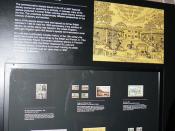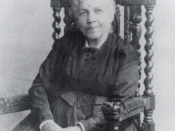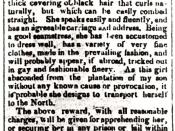Broken Silence Since the foundation of society, certain topics have been considered taboo. Respectable people in the public arena do simply not talk about some things. Sexual immorality/exploitation is one of these forbidden issues. In the mid 19th century and into the early 20th, it was simply uncouth for slave women to discuss the terrible things that assailed them under the institute of slavery. In the FWP Ex-Slave Narratives the women interviewed deliberately made no mention of the sexual oppression they endured while in bondage. Harriet Jacobs was one of the first ex-slaves to bow her back to public criticism and document the sexual tyranny that accompanied slavery.
During the Great Depression, employees of the Works Progress Administration interviewed a number of ex-slaves. This collection of oral histories given by aging former slaves was rather bland. It did not give a true picture of the brutal institute of slavery. Researchers conducting the interviews, due to societal taboos, avoided painful questions of brutality, violence, and rape.
Thus, the results were largely void of any negative responses. In one of the narratives I read, "out of about thirty-five Negroes contacted only two seemed to feel bitter over memories of the slave days" (Radford 309). The other thirty-two ex-slaves expressed immense gratitude toward their former owners and spoke longingly of the old days when their masters cared them for. These men and women didn't seem to fully grasp the concept of freedom. While discussing the emancipation of the slaves, one man remarked that freedom "didn't make no difference to me" (Radford 347).
On the whole, the Ex-Slave Narratives appear to be suspiciously free of negative recollections of slave life. In response to one interviewer's question concerning his happiness while on the plantation, an old ex-slave woman replied, "I'd be a heap better off...


